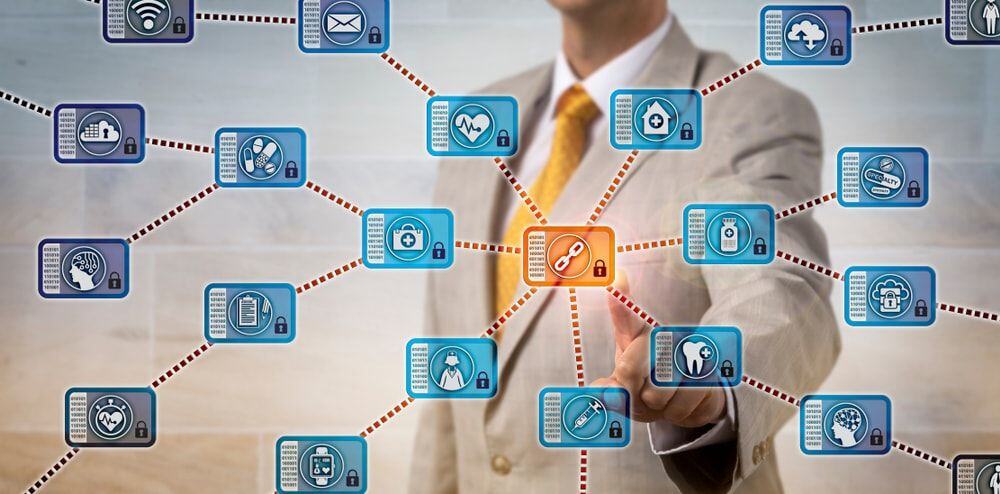5 Benefits of Interoperability in Healthcare
How much thought do you give to the various computer systems that have been set up to enable staff to keep track of and manage patient data as well as communicate and connect with other entities, such as insurance providers and referring physicians?
While the computer setup is the main concern for your IT department, being aware of how these systems connect and work together is a matter of importance for everyone on staff regardless of their position. To that end, healthcare organizations must stay aware of interoperability and how it supports their team as well as the patients they serve.
You have patient information being created, updated and examined on an ongoing basis, plus computers that communicate with insurance companies and data storage systems (such as radiology images) as well as researchers and pharmacies.
The computer systems, software, and databases are typically created by different companies and may not have been designed from the start to work well with other setups. Yet, often they must be tied to one another to allow seamless operation in a healthcare organization. Computer professionals refer to interoperability to describe the ways these widely divergent systems connect.
Here are 5 benefits of interoperability in healthcare for you to keep top of mind.
1. Helps Safeguard Patient Data
Protecting patient privacy and securing their sensitive data is one of your top priorities. You should know that interoperability in healthcare helps to protect patients’ information. Instead of employees having to type in the same information about a patient multiple times, the system accesses the details it needs, such as from the Electronic Health Records or EHR system.
The fewer people who touch and update patient details, the less chance there is of the information going astray and into the hands of criminal hackers. Your IT department can set up strict rules about who is allowed to input and access this data, which makes it easy to monitor staff compliance as well as to perform audits if you suspect a data breach. Horror stories of patient confidentiality being compromised because of old fashioned, poorly networked computer systems will be a thing of the past.
2. Assists Researchers Working for the Public Good
The data that you amass during the normal course of events while diagnosing and treating patients can prove to be a goldmine of information for public health researchers. Interoperability allows your internal computer systems to connect with networks of computers that these scientists rely on for doing such things as epidemiology studies or to review the efficacy of a particular method of treatment.
So not only are you using patient data more efficiently within your organization because of interoperability connections, but you are also able to share it more readily with those researchers who are working to protect society against a whole host of medical problems. Remember that you can let people know in your marketing materials how you are providing data to scientists to improve your reputation in the community, so you have a chance to build up some goodwill locally.
3. Improves Staff Productivity
When computer systems and databases are set up for interoperability, you will see a noticeable increase in productivity. From lowering the amount of the same data being redundantly entered (sometimes many multiple times) alone, you will speed up document processing. Working with digital documents exclusively (or at least converting paperwork to digital) saves time in finding and updating records.
4. Exchange Data Better With Other Systems
Think of the various types of information that your staff needs to transmit and share with others. A referring physician will need reports of the CAT scan you ordered, for example, or you are providing data updates to an insurance company or Medicare/Medicaid. If you need to refer to an x-ray taken in your facility earlier in the day, the images will pop up on the display thanks to the interoperability in healthcare of connected databases.
You can easily communicate electronically with the patient’s pharmacy too. This means that the pharmacist doesn’t need to spend time trying to decipher a doctor’s messy handwriting since you are sending out a digital version. The RX goes out to the pharmacy before the patients have even left your waiting room, saving time because the medication can be dispensed while they are en route.
5. Better Experience for Patients
Reducing paperwork for staff and patients alike is a huge benefit that comes with interoperability. Patients won’t have to fill out the same repetitive forms and staff won’t have to rekey this information from paper into the database. What’s more, patients won’t need to keep explaining their situation, since the details will be right in their record for any staff who needs to see it before consultation or follow-up.
Interoperability in healthcare provides clear benefits to patients as well as staff in your organization, meaning it is a topic that deserves further consideration by you and fellow stakeholders. With your free time being quite limited because of your job responsibilities, it makes sense to rely on trusted sources of information relating to the healthcare industry. One easy way to stay abreast of key issues is to click here to subscribe to this blog, so you won’t miss a thing.
Key Takeaways
-
The ability of disparate computer systems to connect and work with one another is known as interoperability.
-
Your organization should be aware of the benefits of interoperability in healthcare so you can better serve patients and allow staff to function more efficiently.
-
Interoperability helps keep patient data more secure because of how it limits the need for manual data transcription and copying.
-
Your staff will tend to work more productively when the computer systems are set up for maximum interoperability, with databases and other applications connecting and sharing information.
-
Patients benefit from interoperability because the connected systems promote better quality and continuity of care.
About Christina Rosario
Christina Rosario is the Director of Sales and Marketing at Advanced Data Systems Corporation, a leading provider of healthcare IT solutions for medical practices and billing companies. When she's not helping ADS clients boost productivity and profitability, she can be found browsing travel websites, shopping in NYC, and spending time with her family.



